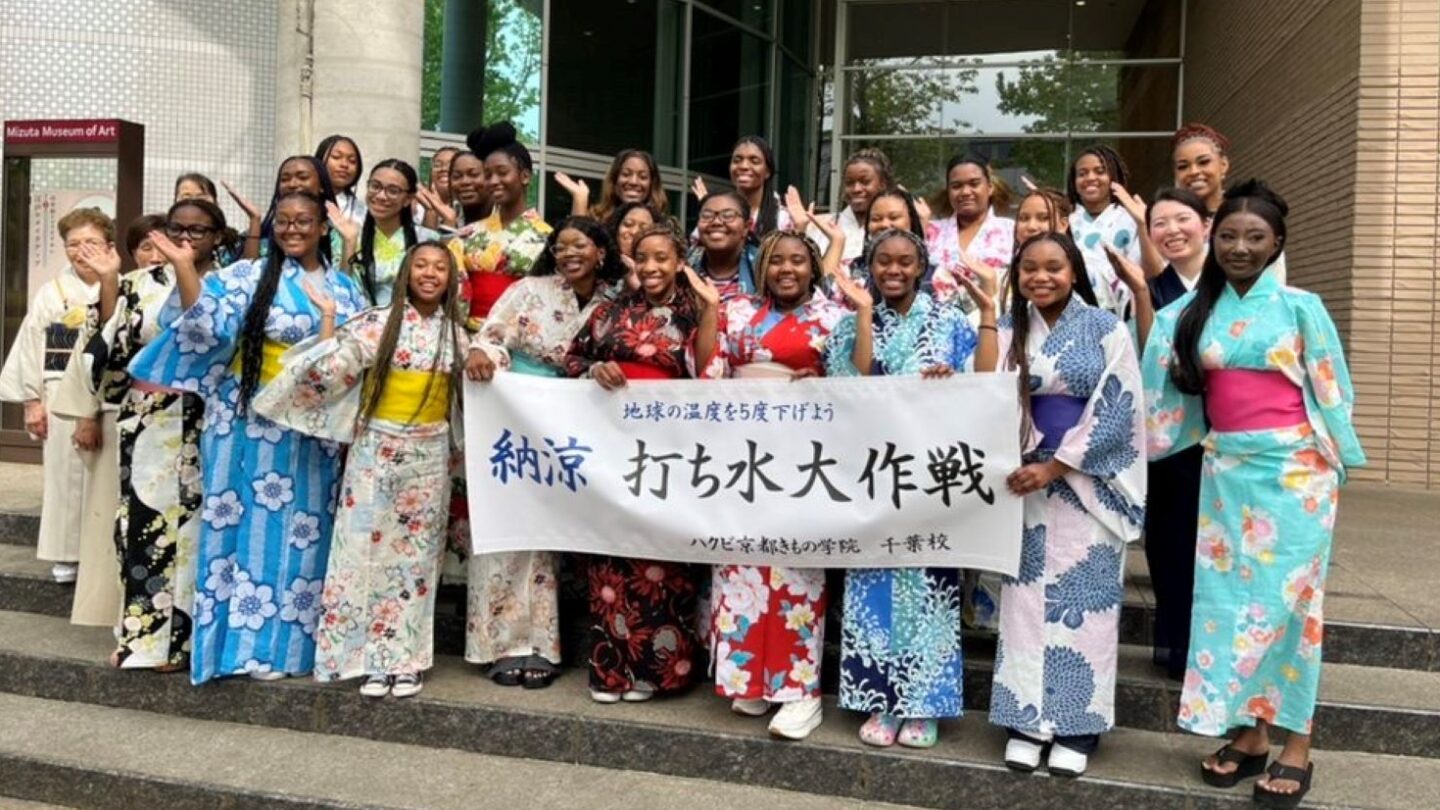Spelman partners with US ambassador to Japan to bring students a global experience

One of Helene Gayle’s primary goals as the 11th president of Spelman College is to offer her students resources that will connect them to their culture and others worldwide.
“We believe African Americans, like every other American, should have the opportunity to be citizens of the world broadly and get the exposure of parts of the world that are important for them as they develop their careers,” said Gayle.
Through her former career as CEO of the Chicago Community Trust, she became acquainted with then-Mayor Rahm Emanuel, who currently serves as the U.S. ambassador to Japan.
When Gayle was appointed president of Spelman in May, Emanuel reached out to offer his congratulations. This ignited a partnership with the U.S. Embassy offering Spelman a $20,000 educational grant for students to travel overseas for a four-week foreign exchange program held in Japan.
“Of the Spelman students, 70% are on some form of student aid or financial assistance — a little higher than the national norm — but then we went about trying to relieve the financial pressure on the school and the students,” said Emanuel.
Through these efforts, 26 students were able to participate in a four-week foreign exchange program in Japan last month, attending Josai International University to study Japanese language, history, and culture with little to no expenses.

On June 6, the students were the guests of honor at a welcoming reception held by the embassy, with Emanuel in attendance to greet the young travelers personally.
For Gayle and her staff, the offering was an opportunity for even more students than expected to experience what new cultures had to offer and proudly represent the Spelman brand across the globe.
“It allowed us to offer students experiences that many never thought they would have,” she said. “It was an incredible gift, not just the gift of money, but the gift to do that kind of cultural exchange. It’s helped us look for ways to have more of a global presence.”
For Emanuel, it was a chance for the embassy to commit to raising diversity, which has proved challenging given the location, and offer students an authentic experience similar to that of new State Department and embassy employees.
“I thought setting up an educational partnership with a historically Black college would be the best way to get the students at Spelman, in this case, the same experience that a lot of these State Department employees and other types of commercial employees had in their own educational background, and replicate it,” said Emanuel.
“These students are going to take this experience and, somewhere, some way, it will shape what they do and what they know. That I know from talking to them at our reception.”
“I think Spelman is doing a phenomenal job of highlighting the diversity of Black women in countries that do not have the diversity.”
Kenya Z. Handfield – Spelman College student – junior
“We started utilizing those language skills that we are acquiring in the classroom very quickly,” said Kenya Handfield, one of the students who participated in the foreign travel program. “As soon as I was learning small words or expressions, that’s how I was maneuvering around the city.”
Handfield, a junior and psychology/pre-law major, said the grant signified the embassy’s investment in their education and their commitment to diversity.
“Diversity is more than skin color. It’s more than background. There’s also diversity of thought,” she said. “I think that it’s really important to tap into the mindsets of other people and other cultures so that when we come together, we understand why people think the way they think, why they operate the way they operate, and that leads into smother transitions for the future.”
Handfield only paid $108 out of the estimated $4,000 trip after the grant. She noted that conversations with the ambassador and his staff have made her more open to pursuing a career in foreign affairs.
“It’s an opportunity where you get paid to travel, get paid to learn different languages, and get paid to examine the culture and report that back to the U.S. so you know how to include and pipeline what you learn with those cultures, and share that with the masses,” she said.
Gayle hopes to continue the partnership with the U.S. Embassy of Japan and that it serves as a blueprint for other foreign embassies to take an investment in college education.
“I think that it is a wonderful example of how our universities and colleges, particularly our HBCUs, can collaborate with our embassies to give those types of experiences,” she said.
“It was an incredible gift, not just the gift of money, but the gift to do that kind of cultural exchange.”
Helen Gayle – 11th President of Spelman College
Handfield notes that while many may be surprised to see an HBCU send students overseas to countries such as Japan that do not hold a high African population or cultural connection, she believes that it is imperative to provide representation for Black women around the world.
“I have sisters who were able to go to South America, Guatemala… and I think Spelman is doing a phenomenal job of highlighting the diversity of Black women in countries that do not have the diversity,” she said.
“One of the things that we pride ourselves on at Spelman and being a Spelmanite is that our tagline is ‘A choice to change the world,’ but it’s so difficult to do that when you’ve never seen the world.”








